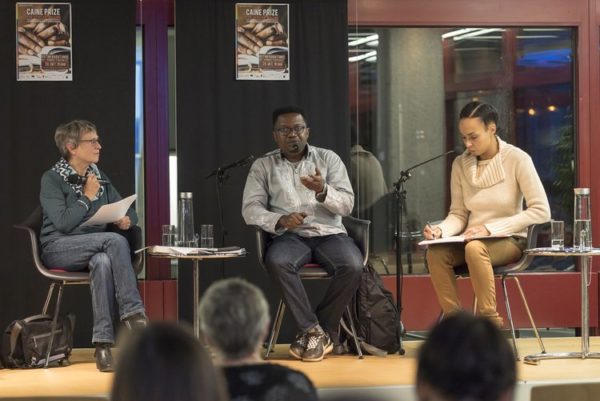
Last week, Caineprize.com published an essay by Rotimi Babatunde detailing his travel to Germany for a series of workshops centered around his 2012 Caine Prize-winning story “Bombay’s Republic.”
The story, one of the very finest to have been shortlisted for the prize, follows an adventurous man who volunteers to fight for the British in South Asia during World War II but who comes to a solid realization of the equal humanity of the races and subsequently returns home to humorously found his own independent republic.
Babatunde’s essay is titled “Out of Europe: Traveling with the Caine Prize in Germany” and is delivered in the second-person, in the sharp, observant prose we have come to associate with his writing. But it is his command of history, his choice of references, that elevates this from an insightful travel piece to a searing revisitation of historical ironies.
The piece begins in an Istanbul airport where three people with lingual barriers are temporarily stranded: a Turk, a German, and a Nigerian—Babatunde himself. A scene that would make a sumptuous point of departure for an interrogation of culture and the reversals of history.
So the Turk, the German and the Nigerian, transiting through Istanbul from different places but, like Chaucer’s medieval pilgrims, compelled into instant comradeship by a common purpose, begin the long hunt for the relevant ticketing desk. The Turk, clutching several rolls of duty-free cigarettes, is in the lead, the three of you sweeping briskly through the self-replicating vastness of that airport for what seemed an eternity before the ticketing desk is finally located.
“Bombay’s Republic” was translated into German by Thomas Bruckner—who has also translated Ngugi and Helon Habila—and published as a standalone piece. Some German institutions organized events to discuss the story and Babatunde locates irony in this.
Out of Europe comes something new, to tweak the motto of the Caine Prize. These cultural organisations include Stimmen Afrikas/Allerwelthaus in Cologne. The MA in Translation programme of the Heinrich Heine University in Düsseldorf. Die Afrika Kooperative in Münster. And the Goethe Institut, Lagos. That is why you’re heading to Germany, which has now become a bastion of liberalism in Europe despite its own right-wing issues, and why you’re in transit through Istanbul.
Babatunde offers insight into the workshops, especially on the delicate issue of translation.
After the preliminaries, the three-person team handling the translation into German, for the second time, of ‘Bombay’s Republic’ begin interrogating the story. The session lasts three hours. It is a rewarding experience. The questions raised by the team communicate their deep engagement with the story. In response to a comment about one of your long sentences, you voice out your assumption that such a sentence would be regular in German, which you know for its long sentences and word concatenations. Thomas Brückner says that tendency in the language makes long sentences written originally in another language even longer when translated into German.
Three paragraphs later, Babatunde delivers this:
It is a valid perspective to see the Second World War as a case of Germany trying to do to Europe what Europe, including Germany, had been doing to people in Africa and elsewhere for many centuries before the war.
Read the full piece HERE.









COMMENTS -
Reader Interactions